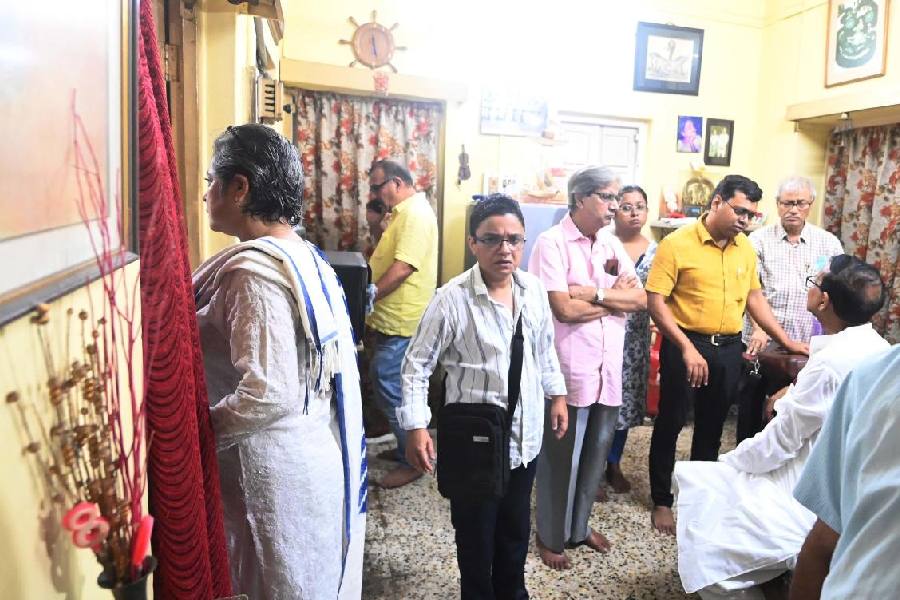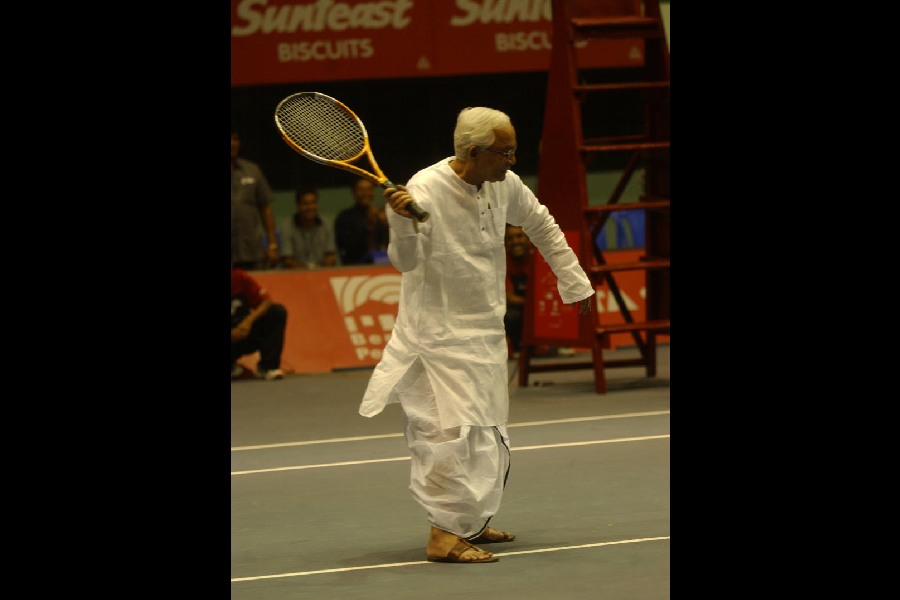In appearance, Buddhada, as he was known to his legions of admirers, was a quintessential Bengali bhadralok. In reality, he was far from that.
Turning his back on a life in which his many talents could have brought him much in terms of fortune, he chose the world of revolutionary politics, joining the CPIM in 1966.
This itself was a remarkable decision from one who was brought up in a family of priests. Those were the years of turbulence in Bengal’s politics, when the winds of change were signalled by the huge mobilisations of Bengal’s oppressed under the leadership of the red flag. The issues of food, land, the fight for human dignity resounded through the villages and towns.
Buddhada, who had completed his degree from Presidency College, threw himself into the movement. He was identified as among the young, promising future leaders by the brilliant organiser and strategist and the then secretary of the Bengal party, Promode Dasgupta.
He was given responsibility as the secretary of the youth federation in Bengal. After the Emergency, Buddhada’s responsibility was shifted to the parliamentary field. That is where he developed his many skills and emerged as one of the most popular leaders in Bengal — as a party leader, as an MLA, as a minister and, from 2000 to 2011, as the chief minister.

A bereaved Suchetan Bhattacharjee (in white striped shirt), son of Buddhadeb Bhattacharjee, at the family's Palm Avenue residence on Thursday. Gautam Bose
He was a person deeply committed to the development of Bengal. I remember that in our conversations, his driving thought was how to create job opportunities for Bengal’s youth. He chose the path of industrialisation.
It was not his decision alone. There were detailed discussions again and again as to how to take this forward. He was not a person to shy away from controversies but the Singur project was for him an important symbol of a fresh approach to the development of industry and which he believed would open up new avenues for employment.
The way things developed, the coming together of all the anti-Left government forces, from the extreme Left to the extreme Right, is part of history.
He was deeply saddened by the deaths from police firing in Nandigram. He publicly expressed his sorrow. It affected him deeply. He had the courage of his convictions. He always argued strongly for his point of view in discussions within the party, but he rarely personalised disagreements. And what I can say without any hesitation is that, Buddhada’s main concern through all the ups and downs was for the future of Bengal and her youth.
Buddhada had a strong commitment to gender justice. He was most encouraging in the work of organising women. He abhorred conservatism in social approaches. His son Suchetan told me only recently how he felt so happy knowing he had the support of his father.
He believed and practised simple living. His personal lifestyle was extremely frugal. He was chief minister for 11 years, and earlier an elected representative and a minister for 14 years, but nothing changed in his lifestyle.
In an interview he once said, “I don’t need a bigger bed than the one I use, I don’t need a bigger table to write on than the one I use, I don’t need clothes different from the ones I use, as long as I have my books I am happy.”
Buddhadeb Bhattacharjee was a communist in his thoughts, his work, his daily life. The frills of office had no charm for him. How he could use power to help Bengal and its people was his major concern. His intellect was reflected in his many writings — he was a poet, an author, a translator of international progressive literature, he was indeed a man of letters — but above all, he was a Marxist, a communist.
In his last years, his wife Meera was by his side through all the difficulties. I used to speak with her from time to time about his health. She tried to conceal her sadness at his deteriorating condition, but her voice reflected her tears and anxiety.
He died on Thursday morning at his home in south Kolkata, in the bed he would not exchange for a chief minister’s grand one. He will be mourned. The red flag dips in his memory in every party office across India and in the chant— “Comrade Buddhadeb Bhattacharjee amar rahe.”
Brinda Karat is a CPM politburo member











